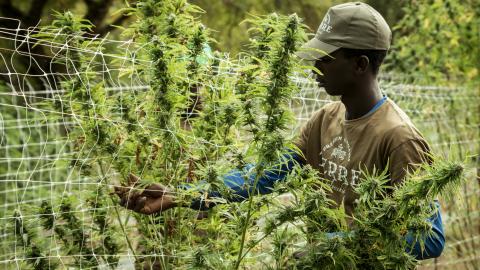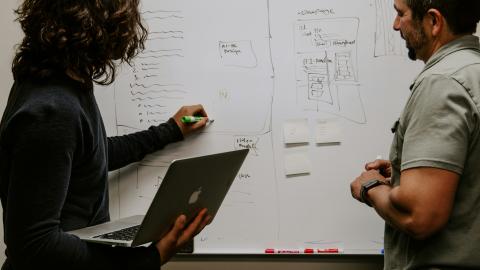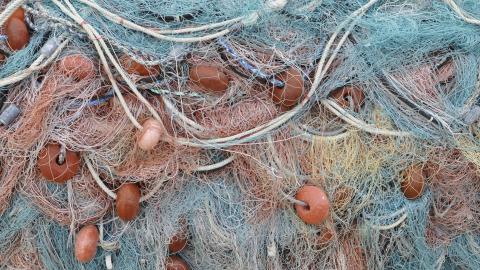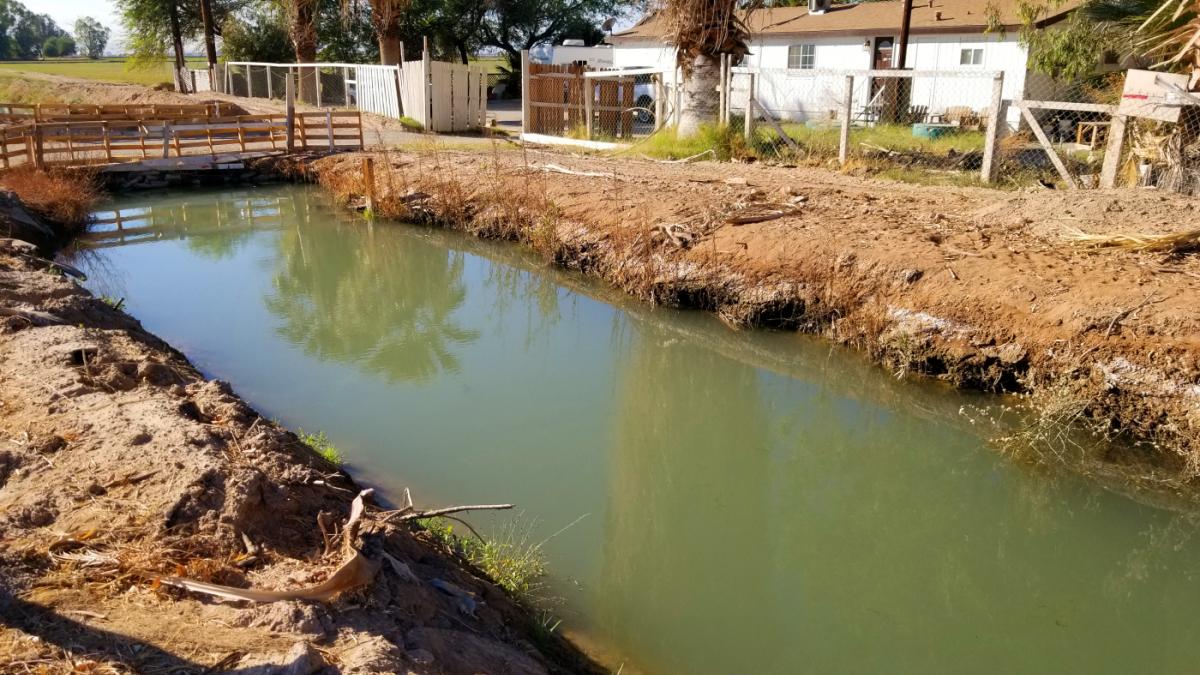
January 2, 2018
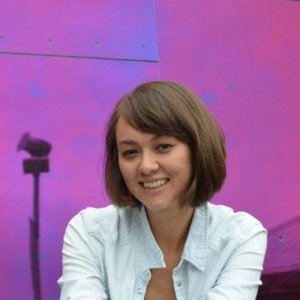
With the Flint water crisis still fresh in our nation’s collective memory, many of us are paying more attention to municipal water systems and their effects on community health. However, few of us think about the folks who live outside municipal water systems and how this can drastically change the conversation about water quality and health. Kori VanDerGeest, a Master of Public Health student and research assistant in the Department of Environmental Health and Occupational Health Sciences, is partnering with the California Environmental Protection Agency, the Office of Environmental Health Hazard Assessment, and Comité Cívico Del Valle, Inc., to address one such problem in Southern California.
Imperial Valley is a fertile agricultural region on the border between California and Mexico that is crisscrossed by over 3,000 miles of irrigation canals. These canals are not only critical to the success of the agricultural industry in the area, but are also the main source of water for residents who live outside of municipal boundaries. At last count, 2757 rural homes use untreated canal water in their homes.
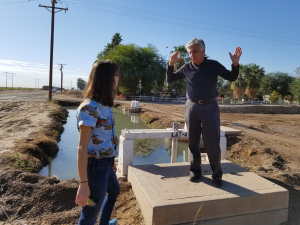 These open-air canals likely contain agricultural and industrial runoff in addition to biological contaminants. Water quality testing conducted by the local water provider indicates that the water does not meet drinking water standards, and residents are required to obtain drinking water from an alternative source, which can be costly. Raw canal water is used for all other domestic uses, including washing dishes, showering, and cleaning, and residents are concerned about the potential health effects associated with this use of the canal water. Imperial Valley is home to farmworkers, low-income residents, and communities that are linguistically isolated. It is crucial that we understand the health effects that these vulnerable communities may face.
These open-air canals likely contain agricultural and industrial runoff in addition to biological contaminants. Water quality testing conducted by the local water provider indicates that the water does not meet drinking water standards, and residents are required to obtain drinking water from an alternative source, which can be costly. Raw canal water is used for all other domestic uses, including washing dishes, showering, and cleaning, and residents are concerned about the potential health effects associated with this use of the canal water. Imperial Valley is home to farmworkers, low-income residents, and communities that are linguistically isolated. It is crucial that we understand the health effects that these vulnerable communities may face.
Limited information is available on the quality of the water used in rural Imperial homes, which is where Kori’s research enters the picture. Under the guidance of UW DEOHS faculty member Dr. Vanessa Galavíz, Kori is working to develop a sampling plan using a community-based participatory research (CBPR) model. A local community steering committee advises the study partners to ensure that the project adequately addresses the needs of the community, and community meetings are held to inform residents of project steps and seek community feedback. Rural residents will identify areas of high contamination during a community mapping activity and assist in sample collection as citizen scientists.
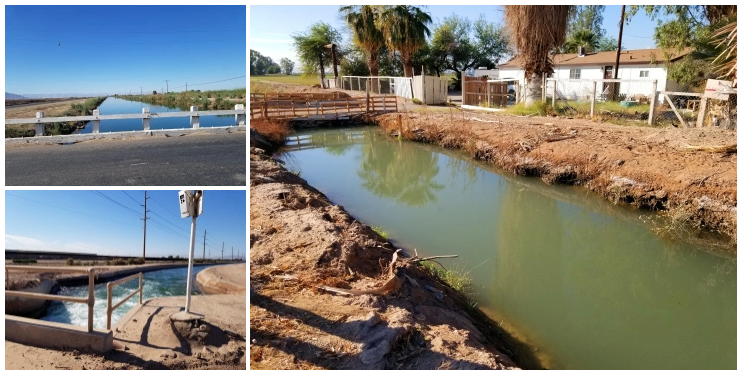
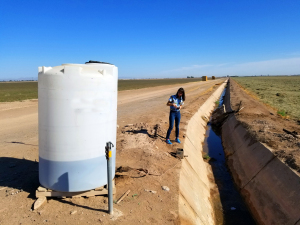
"Kori is an exceptionally industrious and bright student who has exceeded all my expectations with her work on this community-based participatory research project. She has proved amazing capacity to interact and communicate with a rural agricultural, primarily Spanish speaking, community in the fight for public health and environmental justice." - Dr. Galavíz
In her first quarter as a research assistant, Kori has facilitated a community steering committee meeting and developed a needs assessment survey and community mapping activity that will be used in upcoming community meetings. Kori is excited to learn about the intersection between environmental health, justice, and policy and to develop the skills necessary to partner with multiple organizations.
“The part of this project that is most meaningful to me is seeing effective collaboration between stakeholders and genuine efforts to engage communities. Our government partners have leveraged their technical and financial resources to make this project possible, but it is our community partners who keep us accountable to folks affected by this issue.” - Kori
All photos courtesy of Kori VanDerGeest and Dr. Vanessa Galavíz


